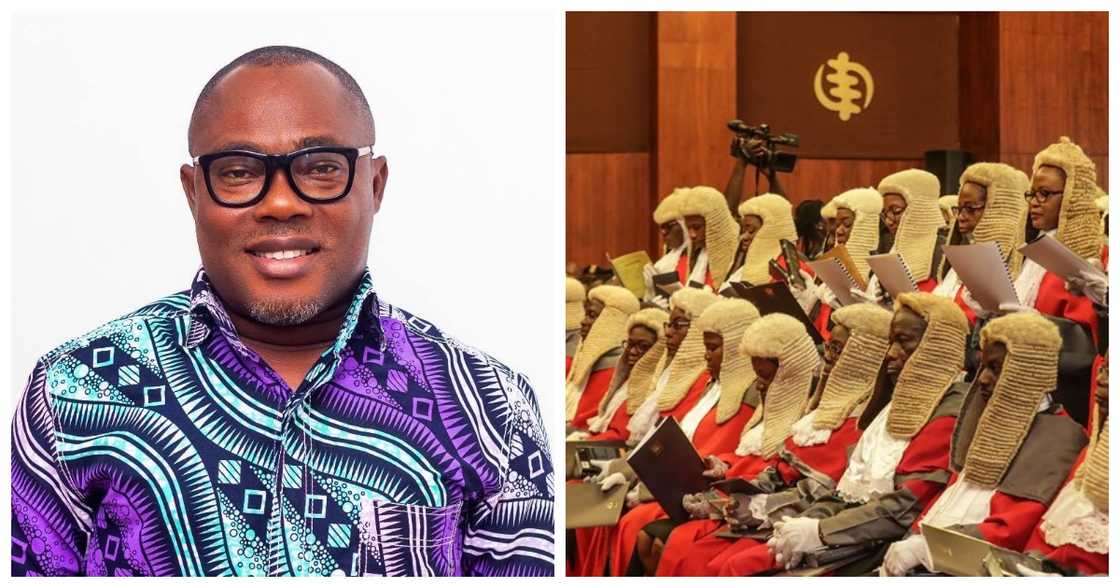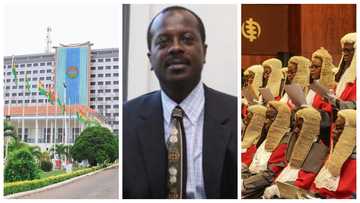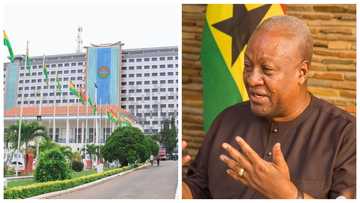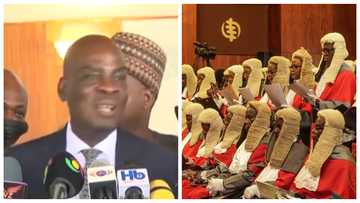Prof Gyampo Proposes Review Of Supreme Court Decision On Deputy Speakers’ Vote To End Controversy
- Prof Ransford Gyampo has suggested a review of a Supreme Court decision that allows deputy speakers to vote while presiding
- The political science lecturer is of the opinion that such a review will quell the controversy that the ruling has generated
- He is also of the opinion that there seems to be too much partisanship in comments about the ruling yesterday
PAY ATTENTION: Click “See First” under the “Following” tab to see YEN.com.gh News on your News Feed!
Prof Ransford Gyampo has proposed a review of a ruling by the Supreme Court on the right of deputy speakers to vote while presiding in Parliament.
The Supreme Court stoked controversy when a seven-member panel of judges decided that deputy speakers temporarily acting as Speakers of Parliament do not lose their right to be counted as part of the quorum for decision-making in the House.

Source: Facebook
Prof Ransford Gyampo, a senior political science lecturer at the University of Ghana, has said in an opinion piece on Facebook that while the apex court has not erred by ruling on a matter that was brought before it, a review of that ruling has become necessary.

Read also
Prof Asare lays bare errors in Supreme Court decision that deputy speakers can vote while presiding
Enjoy reading our stories? Join YEN.com.gh's Telegram channel for more!
He said as master of its own rules, Parliament can set aside the ruling by the Supreme Court and work with its standing orders.
“But this, to my mind, shouldn’t be the case, as it may amount to paying the judiciary back, by snubbing their ruling and setting the stage for another chaotic clash in Parliament, between those who support the ruling and those who are against it. The way to go maybe is for a review of the decision to be sought at the Supreme Court,” he proposed.
The political science professor noted further that the Supreme Court ruling on Wednesday, March 9, 2022, has been politicised a bit too much.
“Unfortunately, the partisan responses have not helped as they insinuate many things that do not help the quest to shore up the independence of the judiciary. Why should it be that every top NPP person likes the ruling while every top NDC hates it? Why can’t we have a middle way of objective thinking about the issue? Excessive partisan is indeed a serious affront to our God-given ability to think and analyze issues, with a view to promoting fairness and objectivity in our political discourse,” he noted.
Supreme Court Says Deputy Speaker Presiding as Speaker Of Parliament Can Vote
Ghana’s Supreme Court has ruled that a deputy speaker, while presiding over proceedings in Parliament, has the right to vote on matters and be counted as part of the quorum for decision-making in the House.
A seven-member Supreme Court bench ruled unanimously that upon a true and proper interpretation of Article 103 and 104 of the 1992 Constitution, a deputy speaker who assumes the temporary role as Speaker of Parliament does not lose his right to take part in decisions.
State-owned Daily Graphic reports Wednesday, March 9, 2022, that in view of the decision, the apex court held that the passing of the budget on November 30, 2021, in which Mr Joe Osei Owusu (Joe Wise), the First Deputy Speaker, counted himself as part of the quorum, was valid.
Prof Asare ‘Schools’ Supreme Court Judges After Ruling That Allows Deputy Speakers To Vote While Presiding
Prof Stephen Asare has published a didactic opinion on the contentious decision by the Supreme Court yesterday that deputy speakers presiding in Parliament do not lose their right to vote.
The respected US-based private legal practitioner is of the opinion that the law and custom or standing orders of Parliament is a distinct body of law and should not be interfered with by the court.
“Parliament and the Courts are coequal branches of government and neither can tell the other how to run its affairs,” he published on Facebook a few hours after the controversial ruling on Wednesday, March 9, 2022.
Our manifesto: This is what YEN.com.gh believes in
Source: YEN.com.gh



